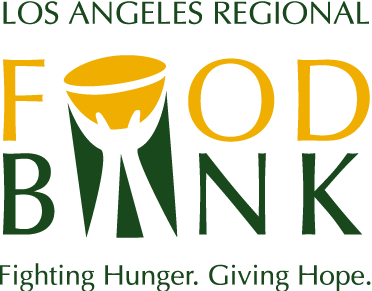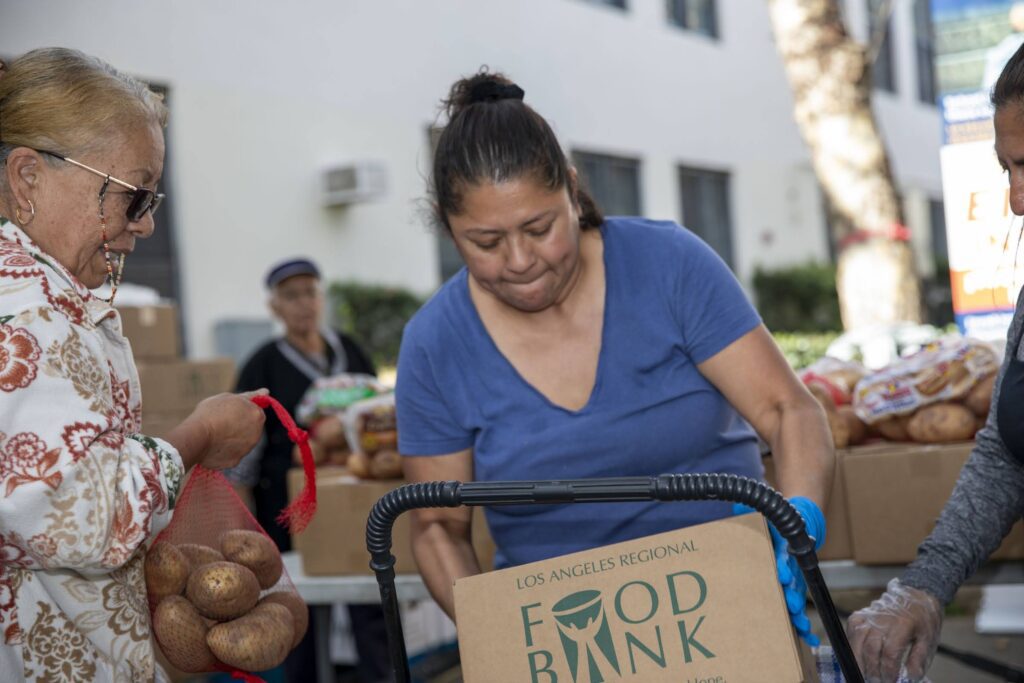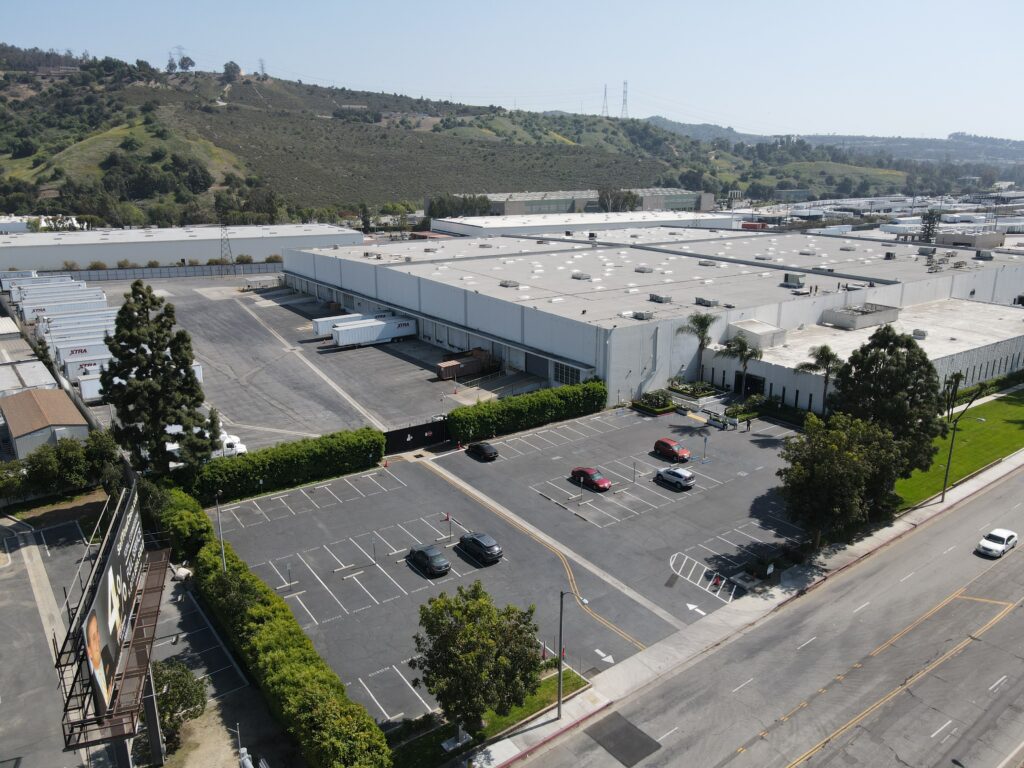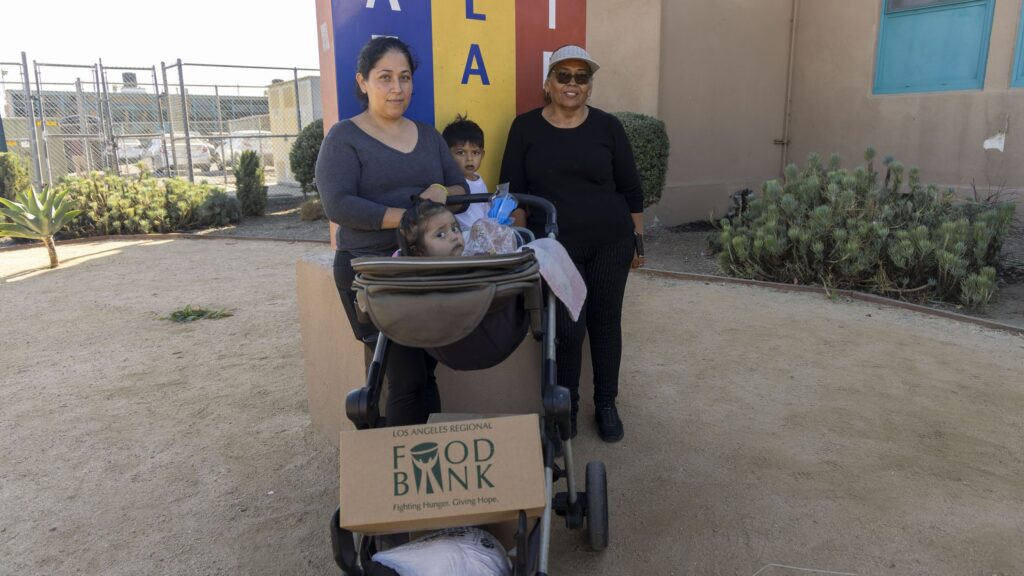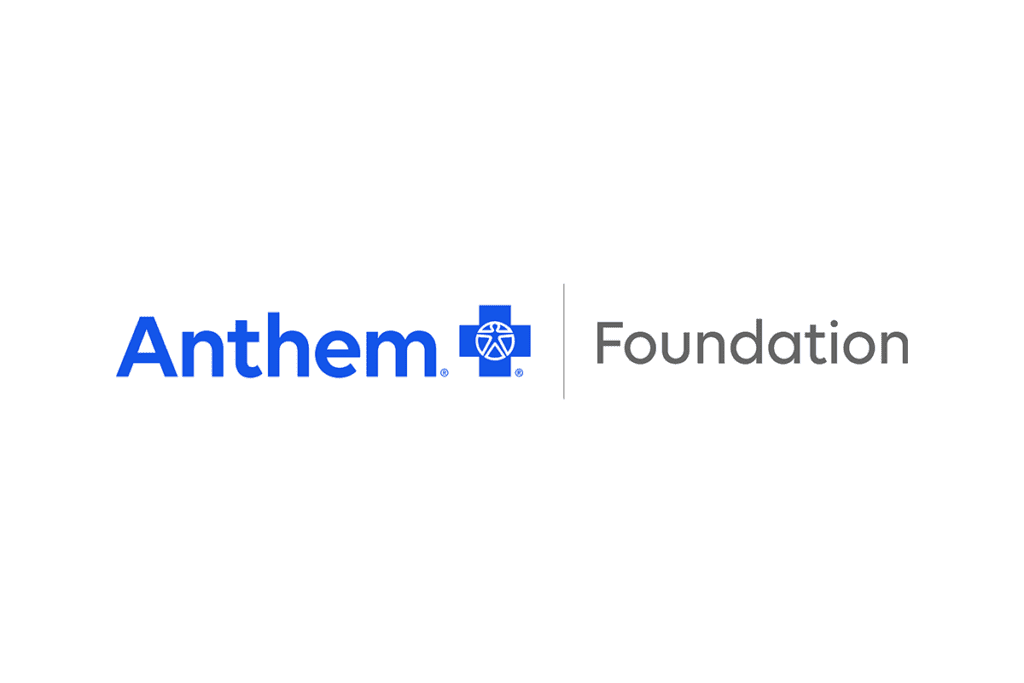Eastmont Community Center – A Food Pantry Rooted in its Community
Eastmont Community Center – A Food Pantry Rooted in its Community
A little over a mile from the Whittier Boulevard cultural landmark sign, on the corner of Hoefner Avenue and Hubbard Street, surrounded by its community, sits the Eastmont Community Center.
Formerly a church, the property owners saw the need and turned it into a community center for its surrounding neighbors to pick up food, or come together in aid of one another. And since then, for over 40 years, the Eastmont Community Center, a Los Angeles Regional Food Bank Partner Agency, has been serving its community, one food box at a time.
From Neighbor to Neighbor
Every Friday, hundreds of its surrounding neighbors line up on Hoefner Avenue, forming a line that extends onto Hubbard Street, waiting for their chance to get a food box that will help feed their families and/or stretch their income. Maintaining physical distancing, clients start catching up. They don’t live far from one another, as the majority of individuals that go to the Eastmont Community Center Food Distribution are within walking distance.
For Renee Contreras, going to Eastmont Community Center has become a weekly ritual. A senior living on a fixed income, Contreras is also the caregiver to three grandchildren, as well as hosting foster children. The $900 a month she receives in retirement benefits, just isn’t enough to cover rent, utilities, food, gas and everything else.
“This helps me out with the basics; beans, rice, chicken, we even get great meats here, and pampers,” Contreras said. “With the money I’m saving, I can buy [my kids] more stuff.”
Being right in the middle of the community has definitely been of huge benefit to both the Eastmont Community Center and the community itself. Not only has the center been providing food to its neighbors before and during the pandemic, but it has also turned into a place many go to socialize, as the pandemic has kept many residents indoors.
For Ana Watkins, the pandemic truly hit home when her adult son and daughter lost their jobs, and she dove into a deep depression. To make matters worse, Watkins, a diabetic, contracted COVID-19 in December.
After seeking professional help for the virus and her mental health, Watkins returned to her daily routine, going on walks and making a stop at a place familiar to her: the Eastmont Community Center.
“Here, they help me with food, therapy, and chats,” Watkins said. “This is of huge help; it’s a great relief. It’s like winning the lottery. I live nearby and coming here feels like a family, a very united family.”
A Helping Hand
If there’s someone that knows the community surrounding Eastmont, it is no other than Program and Operations Manager Brenda Mata. Growing up in the area, and being part of the Eastmont team for 17 years, Mata knows firsthand the struggles of her community.
As a young child in primary school, she didn’t realize she and her family were food-insecure. Over the holiday season, she and her family anonymously received a box full of toys, food, snacks and other goodies. Unbeknownst to her that fate would bring Mata back around to the very same place that helped her family once.
One day, as she and her team prepared boxes for “Navidad en el barrio,” or “Christmas in the neighborhood,” she began filling boxes with similar items to those she remembered as a child. Now, Mata was in charge of helping families like hers get through rough times, just like someone else did for her family.
“I am a product of your donations, I was a youth here in East LA,” Mata said. “I am a product of the Food Bank and Eastmont because I received food from you, thanks to the donations that the Food Bank has received. You want more people to be able to give back to their communities and watch them grow and better their situations, and that’s what we try to do.”
In 2020, 98.6% of all contributions to the Food Bank go directly to help programs like the Eastmont Community Center. If you are in a position to do so, please donate now. Together, #WeFeedLA.

